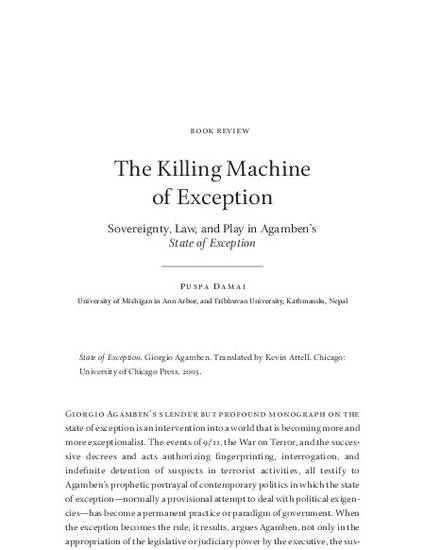
Giorgio Agamben’s slender but profound monograph on the state of exception is an intervention into a world that is becoming more and more exceptionalist. The events of 9/11, the War on Terror, and the successive decrees and acts authorizing fingerprinting, interrogation, and indefinite detention of suspects in terrorist activities, all testify to Agamben’s prophetic portrayal of contemporary politics in which the state of exception—normally a provisional attempt to deal with political exigencies— has become a permanent practice or paradigm of government. When the exception becomes the rule, it results, argues Agamben, not only in the appropriation of the legislative or judiciary power by the executive, the suspension of the constitution, and the extension and encroachment of the military’s wartime authority into the civic sphere, but also in a state of global civil war, which “allows for the physical elimination not only of political adversaries but of entire categories of citizens who for some reason cannot be integrated into the political system”. In a way, therefore, the State of Exception is an exploration or analysis of the ways in which this killing machine of exceptionalism works.

Copyright © 2005 by Michigan State University.
This Article originally appeared in CR: The New Centennial Review Vol. 5, Iss. 3, 2005, pages 255-276.
Printed with permission. All rights reserved.
DOI: 10.1353/ncr.2007.0032